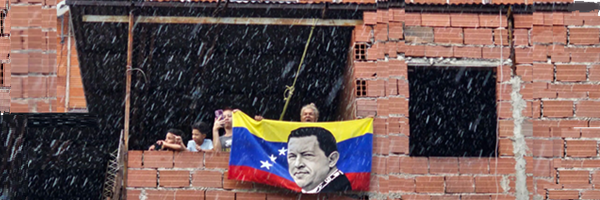Venezuela Renews Its Allegiance to Its Revolution

Jamal Ghosn, Orinoco Tribune, July 31, 2024 —
As expected, the Bolivarian Revolution in Venezuela is facing a new coup attempt following the announcement of President Nicolás Maduro Moros’ victory for a third term, after succeeding the revolutionary Hugo Chávez in 2013. Western media paved the way, weeks ago, for the declaration of Edmundo González Urrutia as the successor to Juan Guaidó, the Venezuelan president who is only recognized in the capitals of the “international community.” They published opinion polls cooked up in the United States, showing the right-wing opposition candidate vastly outperforming the socialist president. As soon as the National Electoral Council announced Maduro’s victory, the campaign to discredit the results began, reaching the point where the de facto opposition leader, María Corina Machado, claimed they had won 70% of the votes without providing any evidence because “Venezuelans and the whole world know what happened.”
Thus, Washington’s campaign against the Bolivarian Revolution continues, after a quarter-century during which it witnessed all types of interventions and coup attempts. Some of these interventions were serious, like the harsh economic blockade that the Venezuelan people have been suffering from since Chávez’s days. The pretexts used by Washington to impose sanctions on Caracas over the years include combating terrorism, money laundering, and drug trafficking, of course, as well as political repression, preserving democracy, and let’s not forget, fighting corruption. The pretexts don’t actually matter, and they could all disappear if Venezuela were to return to the house of obedience. In fact, some sanctions were lifted last autumn as a result of negotiations between the Joe Biden administration and Maduro’s government, which had been shunned by the White House, but these sanctions were re-imposed this spring.
Some interventions and coup attempts were comical, like the Hollywood charade starring US coup expert Elliott Abrams, Florida Senator Marco Rubio, and British billionaire Richard Branson in February 2019. At that time, the owner of Virgin companies organized a massive music festival on the Colombian-Venezuelan border, with the intention that hordes of “liberators” led by Marshal Abrams and the “legitimate president” Juan Guaidó would cross the border towards the Miraflores Presidential Palace. But they didn’t cross the border bridge.
There was another attempt, really another comedy film, a year later, by a private American company owned by a former US Army officer. Jordan Goudreau was supposed to lead 300 armed men in a sea landing and invade Caracas. However, Caracas intelligence uncovered them early and captured the attackers (including two former US soldiers), thwarting the plan that both Juan Guaidó and his mentor Donald Trump washed their hands of. Of course, Washington succeeded in one of its coup attempts, which was on April 11, 2002, when it managed to overthrow Hugo Chávez, only for him to return to his position 47 hours later.
We cannot predict what form the next coup attempt will take, but it will certainly come. Here, we are not talking about democracy, elections, and the number of votes for this or that candidate in ballot boxes. Everyone plays the democracy game, but the serious confrontation is elsewhere. Let’s assume that Maduro had lost the vote against Washington’s candidate. Do you think the Venezuelan revolutionaries would stand idly by while the United States returns to lay its hands on the country? Would they remain frozen in place while resources are plundered, austerity imposed, and the people deprived of their revolutionary gains in education, health, food, and housing, which didn’t exist a quarter-century ago? Would they accept seeing their country’s wealth translated into towers in Miami Beach as it used to happen before? And would the army chief rush to take photos with ambassadors who threaten their country day and night? Of course not.
What protected Venezuela from Washington’s relentless attacks is not winning an election. What protected it is the revolutionary consciousness of a large segment of the poor people who are no longer disenfranchised. What preserved Venezuela in the face of coups is not “a state of institutions and law.” What preserved it is the establishment of a state resistant to coups in the face of imperialist temptations and threats.
The electoral process is over, but the confrontation continues… and so does the revolution.
